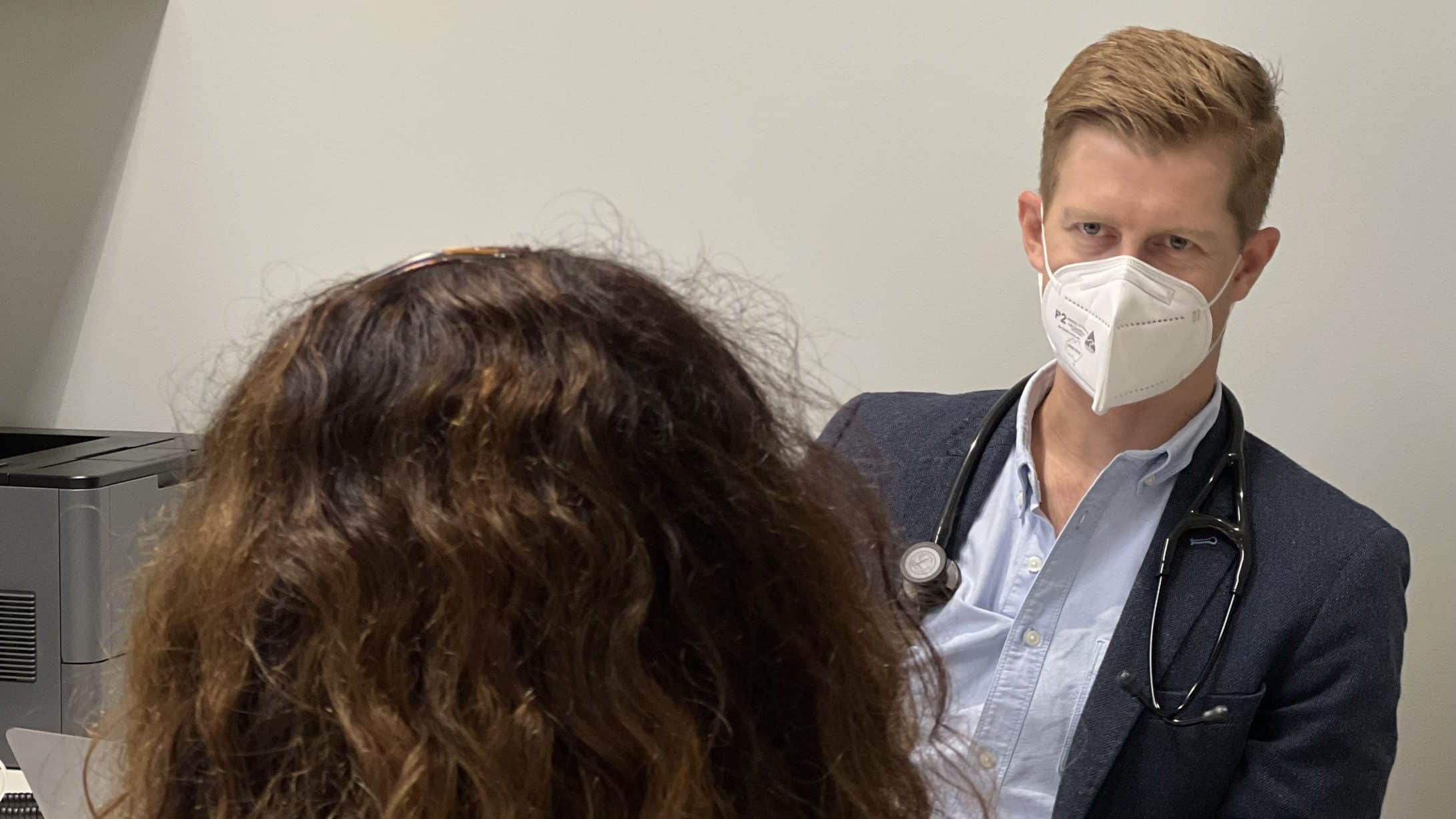Congenital Heart Disease (CHD) is the most common form of birth defect in Australia, affecting about 1 in every 100 newborn babies.
Congenital Heart Disease (CHD) is the most common form of birth defect in Australia, affecting about 1 in every 100 newborn babies.
CHD occurs when normal development of the heart is disrupted in-utero. This can lead to a person being born with improper heart function, affecting the flow of blood around the body and back to the heart.
There are many types of CHD and severity ranges between individuals. Some defects are simple and don’t require treatment. Others may need surgical intervention over many years.
Thankfully, medical care and treatment have improved significantly over the past 50 years, and people with congenital heart defects are living longer and healthier lives.
Dr David Baker, Brellah Clinical Academic Cardiologist tells us more:
What are some common CHD conditions?
CHD encompasses a broad spectrum of heart defects, from relatively simple to extremely complex, more rare conditions.
Common simple conditions include:
- Atrial and ventricular septal defects – hole in the heart
- Congenital valvular lesions – one or more of the heart’s valves not properly developed
- Persistent ductus arteriosus – persistent opening between the two major blood vessels from the heart
- Anomalous pulmonary venous drainage – the veins carrying blood back to the heart from the lungs are abnormal.
Some moderate conditions include:
- Tetralogy of Fallot – the most common CHD causing low-oxygen levels or “blue” babies
- Transposition of the great arteries – the two main arteries leaving the heart are switched
- Ebstein anomaly – congenitally abnormal tricuspid valve, which often is severely leaky
- Aortic coarctation – narrowing or constriction in the aorta which forces the heart to pump harder
- Pulmonary atresia – where the valve controlling blood flow from the heart to the lungs doesn’t form.
Finally, the most severe conditions include those with significant unrepaired defects, or those with complex anatomy (repaired or unrepaired), including those who only have a single functioning heart pumping chamber (as opposed to the “normal” two).
What is the prognosis?
The prognosis for CHD has improved significantly over the past half-century, due to advances in surgical and medical care. This has led to more adults now living with CHD than children.
Although prognosis differs for each patient and each condition, for most simple to moderate lesions it is excellent with appropriate care. Improvements continue to be seen in the most complex of heart defects, where we are seeing adults live well into middle age.
Crucially, it has been shown that outcomes are improved when people living with CHD are managed by congenitally trained Cardiologists, as opposed to no specialist care, or even non-congenitally trained Cardiologists.
How can successful outcomes be achieved?
For adults living with CHD, good heart health can be achieved by having an effective, long-term relationship with their medical team first and foremost.
Many complications of CHD may not lead to symptoms until it may be too late to safely intervene. Routine follow-up and surveillance are therefore vital to ensure that any abnormalities are recognised early, and effective treatments are initiated similarly.
Although “traditional” cardiology problems such as high cholesterol, diabetes, and heart attacks may be less of an issue, maintaining a healthy body weight, an adequate diet, and exercise capacity are very important.
Often, exercise capacity is reduced in moderate to complex CHD lesions, and actively working on this aspect is vital from a young age.
Historically, exercise may have been discouraged in young patients with heart disease, but we now work together to encourage and plan safe exercise routines.
What are the signs to look for with general heart health
Common signs and symptoms for people with poor heart health include a declining exercise capacity, becoming more breathless, abnormal heart beats or palpitations, and dizzy episodes/black outs.
With abnormal hearts and prosthetic material, infection of the heart may be more common, and I educate all my patients on the warning signs for this as well (fever, anorexia, chills, night sweats, weight loss).
People living with congenital heart disease are a special population, who by the time of adulthood, have already undergone so much, such as major cardiac surgery or surgeries! It is common for patients to become accustomed to their own “normal” and therefore under-report symptoms. Thus, it is vital that routine follow-up is continued, even when patients are “feeling well”.
What made you decide to specialise in CHD?
Every person living with CHD and every heart is different. This population is often a younger cohort, who have already dealt with such adversity for their young age.
I find this nurtures a powerful resilience, optimism, and gratefulness.
It is extremely rewarding to support them through their adolescence, young adulthood and beyond, to achieve and maintain the quality of life they deserve.
I’ve been very fortunate to support and guide patients through major life events, such as planning and starting a family.
Dr David Baker is a Clinical Academic Cardiologist with special interests in Adult Congenital Heart Disease, advanced cardiac imaging (MRI), and broader interests in arrhythmia, heart failure and pulmonary hypertension.
David is a Staff Specialist at Royal Prince Alfred Hospital, following the completion of his sub-specialty training in Adult Congenital Heart Disease. He is furthering his expertise in advanced cardiac imaging (MRI), and is currently the Clinical Fellow at Cardiovascular Magnetic Resonance in Sydney.
David graduated from the University of Newcastle in 2007 and the Australian National University in 2011, before being awarded his FRACP in 2019 following medical and cardiology training at the John Hunter Hospital, Newcastle NSW.
A keen teacher, David is also a Clinical Lecturer for the Faculty of Medicine and Health, University of Sydney.
This article is for information purposes only. It does not constitute medical advice, is not tailored to your personal circumstances and you should seek your own medical advice from an independent medical professional with regards to what options are best for you.

